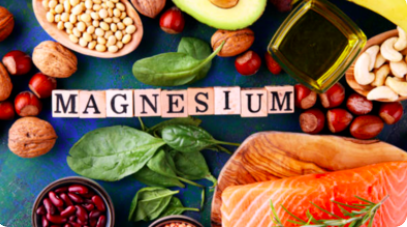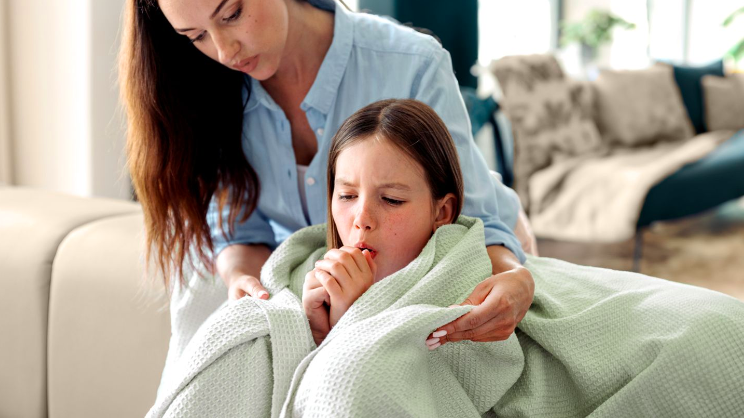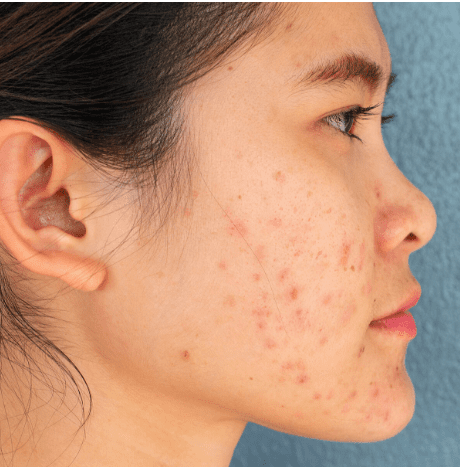Health
Do Pimples Cause Headaches? Here’s What You Need To Know

Do Pimples Cause Headaches? Here’s What You Need To Know
For many people, headaches are the worst thing imaginable. And if you’re one of those people, you’re not alone – headaches are the number one complaint among adults in the US! But what’s the connection between headaches and pimples?
And what are the symptoms of a headache caused by pimples? In this blog, we’ll answer all these questions and more.
We’ll also provide tips on how to treat headaches caused by pimples, as well as explain the role of pore-clogging in this condition.
So read on to learn everything you need to know about headaches and pimples – and get relief from your pain in no time!
How to treat headaches caused by pimples?
Headaches caused by pimples can be bothersome, but they’re usually mild and self-limited. If the headache is severe, your doctor may prescribe an antihistamine or a decongestant.
If the headache persists after treatment, you might need to see a specialist. Pimples are usually mild and self-limited, but they can occasionally cause more serious headaches in some people.
If you experience any type of headache, be sure to consult your doctor to rule out more serious causes.
Pimples and headaches: What’s the connection?
Headache sufferers know all too well how debilitating they can be. Fortunately, there are a few things that can help alleviate the pain.
One of these is pimples – as they often create increased pressure inside the head. Acne is also a common cause of headaches – pimples are often located on areas of the skin that are delicate and prone to swelling.
If your headaches persist despite using these remedies, you may need to visit a doctor for further evaluation. In the meantime, keeping a headache diary can help you track your symptoms and find out which ones are most persistent.
Headache and pimples
It’s no secret that headaches and pimples are two of the most commonly reported symptoms. In fact, they’re both commonly associated with an underlying health condition.
So, if you’re experiencing one or the other, it’s important to rule out any other possible causes.
For headaches, it’s important to check for signs like a sinus infection or concussion.
If you do have a headache, the best way to treat it is with over-the-counter topical treatments like benzoyl peroxide or azelaic acid.
If you’re looking to get rid of pimples, the best approach is to use over-the-counter topical treatments like benzoyl peroxide or azelaic acid.
However, it’s also important to maintain good hygiene – keep your face clean and avoid rubbing your skin too hard.
Finally, remember that you don’t have to suffer in silence – talk to your doctor or dermatologist about any symptoms you’re experiencing.
Causes of headaches
Headaches are one of the most common symptoms and can be caused by a variety of health conditions.
For example, headaches are a common symptom of sinus infections, migraines, and acne.
Additionally, pimples can also cause headaches because they make the skin swollen and sensitive.
Home remedies like soaking in cold water or applying ice to the forehead may help relieve symptoms quickly. If the headache doesn’t go away after trying these solutions, see your doctor for an assessment.
While there is no one-size-fits-all solution to headaches, knowing the causes can help you get relief more quickly.
What are the symptoms of a headache caused by pimples?
Headaches caused by pimples can be quite painful. In fact, they’re often localized on one side of the head or the back.
They may also be accompanied by pain in the temples, neck, and scalp. Blocking of blood flow to your brain can cause discomfort and a headache.
If you experience headaches that are particularly bothersome and recurring, it might be a good idea to see your doctor for an evaluation.
There, he or she can rule out other potential causes and determine if you need treatment for your pimples.
Frequently Asked Questions
What are some tips for treating a headache caused by pimples?
When it comes to treating a headache caused by pimples, there are a few things that you can do.
Acetaminophen is a great treatment for headaches because it helps reduce inflammation and pain. Antihistamines can help to relieve symptoms and ibuprofen can also be effective at reducing inflammation.
Ice will help to reduce swelling and pain, while also avoiding further damage to the skin. Always consult your doctor before treating any type of headache – it may require medication or surgery.
Is it possible to get acne anywhere on the body and cause a headache?
Acne can be found on any part of the body, but it is more common to find it on the face, neck, chest, and back of the hands. In some cases, acne may lead to headaches.
When it comes to location, acne will depend on the severity of the breakout. Acne that is mild or located in a small area will not usually cause headaches.
However, acne that is severe or widespread may cause pain, redness, and drainage from the skin.
What should I do if my headaches keep getting worse even after trying various treatments?
If you are experiencing worsening headaches that seem to be related to your acne, there are a few things that you can do to help.
1. Acne is one of the most common causes of headaches. By tackling your acne, you may be able to reduce the amount of oil produced by your sebaceous glands and alleviate your head and neck pain.
2. Make sure to wash your face regularly with good soap and use a moisturizer that suits your skin type. Cleansing and moisturizing your skin will help to control excess oil production and alleviate headaches.
3. If you are allergic to cosmetics or makeup products, you may want to try using topical antibiotics or antihistamines instead. These treatments will help to clear up acne while preventing any further exacerbation of your headaches.
Conclusion
If you’ve been dealing with headaches lately, it’s likely that pimples are the culprit. Pimples can cause inflammation and block blood flow to your brain, which in turn causes headaches.
However, there are a few things that you can do to treat and prevent headaches caused by pimples. Firstly, make sure to treat any existing pimples with a suitable acne treatment.
This will help to reduce inflammation and improve blood flow. Secondly, make sure to keep your head cool and avoid wearing tight clothes that can restrict blood flow.
Finally, drink plenty of fluids to avoid dehydration and headaches. We hope this blog was helpful and that you find the information on headaches caused by pimples helpful as well!
Health
7 Fascinating Facts About Magnesium You Probably Didn’t Know

7 Fascinating Facts About Magnesium You Probably Didn’t Know
Magnesium is one of the most essential minerals for our health, yet many people are unaware of its significance.
This vital nutrient plays a crucial role in numerous bodily functions, from energy production to maintaining a healthy heart.
In this article, we will delve into seven intriguing facts about magnesium that may surprise you and help you appreciate its importance in your daily life.
What is Magnesium?
Magnesium is a naturally occurring mineral found in various foods and is vital for human health.
It is the fourth most abundant mineral in the body and is involved in over 300 biochemical reactions.
Magnesium contributes to nerve function, muscle contraction, blood sugar control, and blood pressure regulation.
It can be obtained from various dietary sources, including leafy greens, nuts, seeds, whole grains, and legumes.
1. Magnesium is Involved in Energy Production
Did you know that magnesium is essential for converting food into energy? This mineral plays a critical role in the activation of ATP (adenosine triphosphate), the energy currency of our cells.
Without sufficient magnesium, your body struggles to produce energy effectively, which can lead to feelings of fatigue and weakness.
How Does It Work?
ATP production occurs in the mitochondria, often referred to as the powerhouse of the cell.
Magnesium helps activate enzymes involved in this energy production process, ensuring that your body has enough energy to perform daily activities.
2. A Key Player in Bone Health
Magnesium is vital for maintaining strong and healthy bones. Approximately 60% of the magnesium in your body is stored in your bones.
It contributes to bone density and strength by regulating calcium levels in the body, which is crucial for bone formation.
The Calcium Connection
Calcium is often touted as the primary mineral for bone health, but magnesium plays an equally important role.
An imbalance of these two minerals can lead to bone-related issues such as osteoporosis.
Ensuring adequate magnesium intake is essential for maintaining optimal bone health.
3. Supports Heart Health
Magnesium is a crucial mineral for cardiovascular health. It helps maintain normal heart rhythms and can reduce the risk of heart disease.
Adequate magnesium levels are associated with lower blood pressure and reduced risk of heart attacks.
Regulation of Blood Pressure
Magnesium helps relax blood vessels, which can lead to lower blood pressure.
Studies have shown that individuals with higher magnesium intake tend to have better cardiovascular health. Including magnesium-rich foods in your diet can be an effective strategy for supporting heart health.
4. Magnesium and Mental Health
Emerging research suggests a strong link between magnesium levels and mental health.
Magnesium plays a role in regulating neurotransmitters, which are essential for mood stabilization.
Low magnesium levels have been associated with an increased risk of depression and anxiety.
Cognitive Function
Magnesium may also enhance cognitive function. Studies have indicated that adequate magnesium intake can improve memory and learning abilities.
This mineral is essential for brain health, making it vital for overall mental well-being.
5. Magnesium Deficiency is Common
Despite its importance, magnesium deficiency is surprisingly common.
Factors such as poor diet, chronic stress, and certain medical conditions can lead to low magnesium levels.
Symptoms of magnesium deficiency can include muscle cramps, fatigue, and irritability.
Risk Factors for Deficiency
Certain populations are at a higher risk for magnesium deficiency, including the elderly, those with gastrointestinal diseases, and individuals who consume a diet low in whole foods.
It’s essential to recognize the signs of deficiency and consider increasing your magnesium intake through diet or supplements if necessary.
6. Natural Relaxant
Magnesium is often referred to as a natural relaxant due to its calming effects on the nervous system.
It helps regulate cortisol levels (the stress hormone) and promotes relaxation, making it beneficial for those dealing with anxiety and stress.
Improving Sleep Quality
In addition to its relaxing properties, magnesium can improve sleep quality.
Many people find that magnesium supplements help them fall asleep faster and stay asleep longer, making it a popular choice for those struggling with insomnia.
7. Magnesium in Sports Performance
Athletes and active individuals often benefit from magnesium’s role in muscle function and recovery.
Magnesium helps prevent muscle cramps and can aid in post-exercise recovery by reducing inflammation and promoting relaxation.
Enhancing Athletic Performance
Research has shown that adequate magnesium levels can enhance athletic performance.
It is involved in muscle contraction and relaxation, making it essential for peak performance during exercise.
Conclusion
Magnesium is a powerhouse mineral that plays an essential role in various bodily functions. From supporting energy production to promoting heart health and mental well-being, its importance cannot be overstated.
Ensuring adequate magnesium intake through a balanced diet rich in whole foods can significantly enhance your overall health and quality of life.
If you suspect you may be deficient in magnesium, consider consulting with a healthcare provider to assess your levels and discuss dietary changes or supplements that may be beneficial.
FAQs about Magnesium
1. What are the best dietary sources of magnesium?
The best sources of magnesium include leafy green vegetables (like spinach), nuts (especially almonds and cashews), seeds (such as pumpkin seeds), whole grains (like brown rice and quinoa), and legumes (like beans and lentils).
2. How much magnesium do I need daily?
The recommended daily intake of magnesium varies by age and gender. Generally, adult men should aim for about 400-420 mg per day, while adult women should aim for about 310-320 mg.
3. Can I take magnesium supplements?
Yes, magnesium supplements are available and can be beneficial, especially for individuals who may not get enough from their diet. However, it’s essential to consult with a healthcare provider before starting any supplement regimen.
4. What are the symptoms of magnesium deficiency?
Symptoms of magnesium deficiency can include muscle cramps, fatigue, weakness, irritability, and irregular heart rhythms. If you experience these symptoms, consult a healthcare professional.
5. Is it possible to get too much magnesium?
Yes, while magnesium from food sources is generally safe, excessive supplementation can lead to toxicity, causing symptoms like diarrhea, nausea, and abdominal cramping. Always consult a healthcare provider before increasing your magnesium intake significantly.
References:
Health
Whooping Cough: Understanding Its Resurgence and Prevention

Health
The Power of Beans: Why This Superfood is a Nutritional Treasure
-

 Trending Stories1 year ago
Trending Stories1 year agoCDC: 1 in 4 Americans Still COVID-Free by End of 2022
-

 Health5 years ago
Health5 years agoMeghan Trainor Shares Motivational New Song ‘Blink’
-

 Health6 months ago
Health6 months agoHow Do Pawpaw Seeds Support Cardiovascular Health?
-

 Health2 years ago
Health2 years agoHow Long Does Monkey Pox Last Before It Surfaces in the Body?
-

 Health3 years ago
Health3 years agoWhat Causes Swollen Body? Understanding Edema and its Triggers
-

 Health3 years ago
Health3 years agoNutrition and the Importance of a Fitness Program – 3 Things to Know
-

 Health3 years ago
Health3 years ago5 Weird Reasons Why Pimples Disappear After Marriage
-

 Health2 years ago
Health2 years agoHealth Benefits Of Pawpaw Seed? 7 Things To Know








